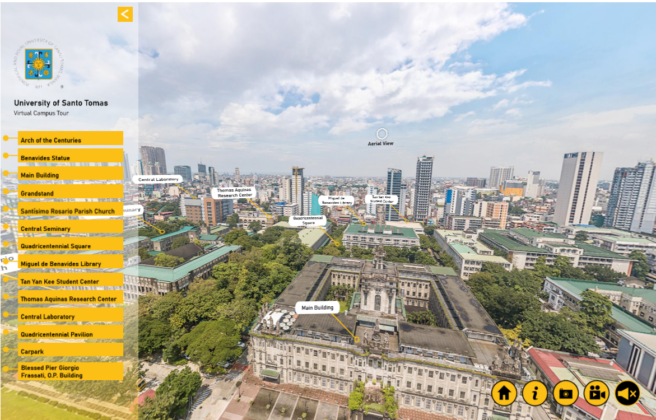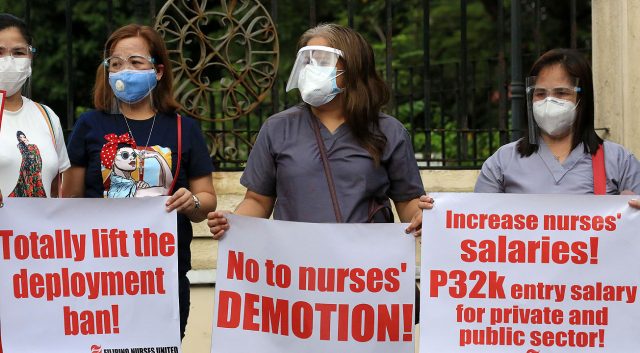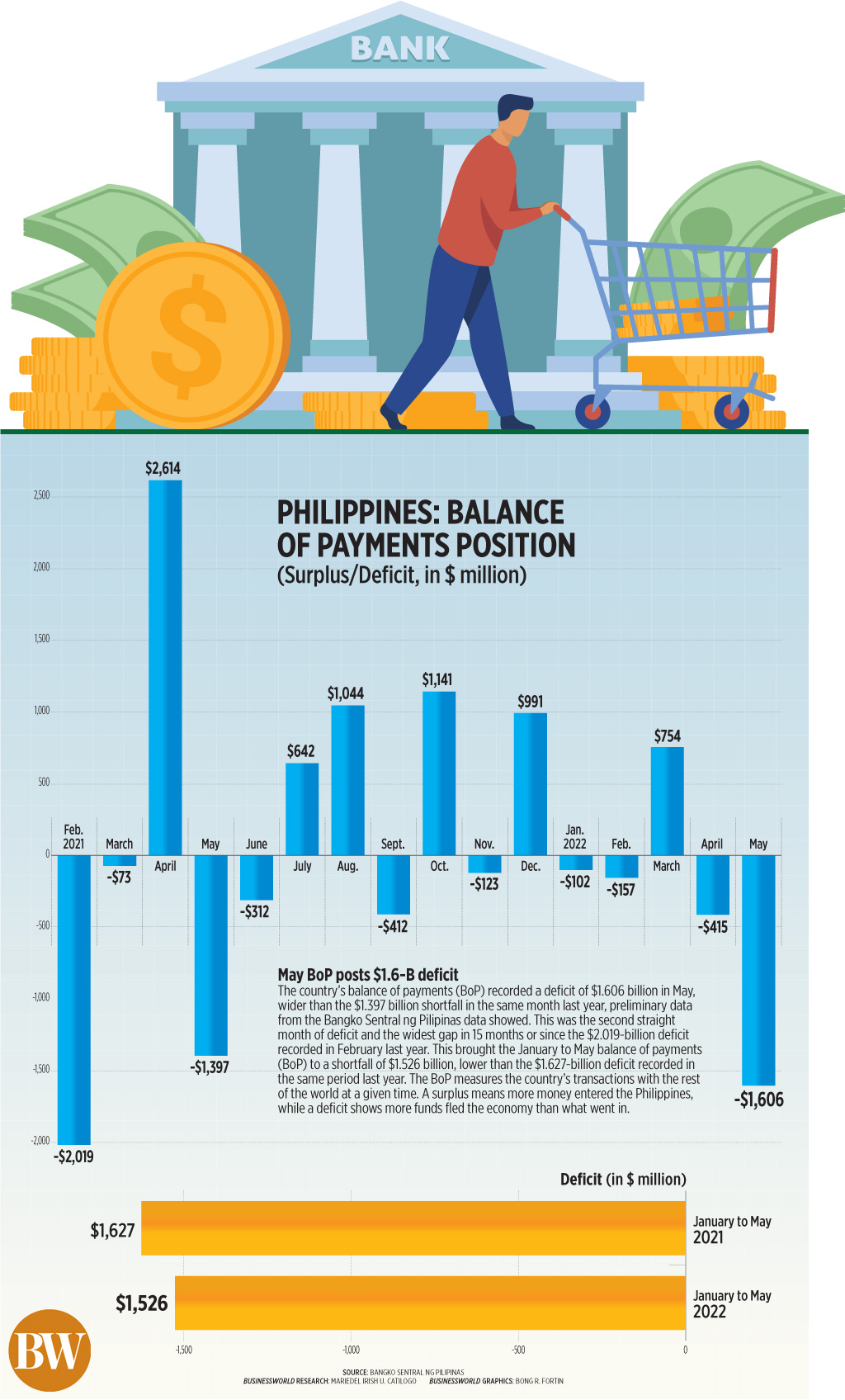Silverlens opens 2 exhibits
SILVERLENS will open two exhibits simultaneously on June 20, with both running until July 30. The first is “What Did The Tree Learn From The Earth To Be Able To Talk With The Sky” by Elaine Navas. This upcoming exhibition marks the artist’s fourth individual presentation with the gallery, her previous ones being “Painting Palettes/Palette Paintings II” in 2018; “Salt Water” in 2016; “Wet Paintings” in 2010. The painter, who has concentrated on life more than anything since the pandemic started, offers introspection on the things that matter: to paint what one wants to see — in thinking that every chance might come as the last. The second exhibit is Yvonne Quisumbing’s “Cartomancer,” a new solo exhibition and the artist’s third individual presentation with the gallery, previous shows being “Apothecary: Prelude in 2020” and “Who Are You Wearing?” in 2015. “Cartomancer” follows a storyline from the innocent Fool towards the wisdom of the World. The narrative is told in 10 oil on sculptural substrates, each representing 10 out of the several archetypes in the Tarot deck. Silverlens is at 2263 Don Chino Roces Ave. Ext., Makati City.
Phyllis Zaballero holds solo exhibition
ALTRO MONDO Arte Contemporanea presents “Home Alone,” a solo exhibition featuring the work of Phyllis Zaballero. Ms. Zaballero has had an illustrious career spanning several decades and was recognized as one of the CCP Thirteen Artists Awardees. She has mounted nearly 40 solo shows in various galleries, government and private museums, and cultural venues in the Philippines, Asia, Europe, and the United States. In 2013, two books about her career and work were released, Phyllis Zaballero by Alfredo Roces, and How and Why I Make Art by Ms. Zaballero. “Home Alone” is on view at the Altro Mondo Creative Space, 1159 Chino Roces Ave., San Antonio Village, Makati City, until June 25. The gallery is open from Tuesday to Saturday, 10 a.m. to 5 p.m.
Clint Rey Policarpio solo show at CCP
THE CULTURAL Center of the Philippines (CCP) presents “Daloy,” the first solo exhibition of artist Clint Rey Policarpio. The venue grant exhibition, which was originally scheduled in 2020 but was postponed because of the COVID-19 pandemic, will run from June 23 to July 24 at the CCP’s Bulwagang Carlos V. Francisco (Little Theater Lobby). “Daloy” is a collection of Policarpio’s works from 2012 to the present, which depicts an understanding of a lively Filipino community, — rich in history, nature, customary beliefs, and personality. Mr. Policarpio is a visual artist and muralist based in Valenzuela City. Exhibition hours are from Tuesday to Sunday, 10 a.m. to 6 p.m., and extended until 9 p.m. on evenings with shows at the CCP Main Theater. For more information on Daloy, visit bit.ly/CCPdaloy. Admission is free and open to the public, only requiring the presentation of a valid vaccination card.
Photographer holds first show
FRENCH photographer Camille Roubiou Du Pont will be holding her first solo photo exhibition, entitled “MAYARI,” at the Alliance Française de Manille Gallery at 209 Nicanor Garcia St. (formerly Reposo), Bel-Air II, Makati. The exhibit is open to the public until July 15, and fine art prints will be available for purchase. The catalogue can be viewed online at https://bit.ly/MayariAFM.
Pelikulaya LGBTQIA+ Film Fest is ongoing
THIS is the final week of the Pelikulaya: International LGBTQIA+ Film Festival, which runs until June 26. There are online screenings at FDCP Channel (register at www.fdcpchannel.ph to start watching), and onsite screening at the Cinematheque Centre Manila (https://bit.ly/PelikulayaFilmsPreRegistration), the Cinematheque Centre Iloilo (https://forms.gle/V2Yrw3QbXCknDBNf7), the Cinematheque Centre Davao (https://bit.ly/CCDPreRegister), and at Cinema ‘76 Anonas (https://bit.ly/PelikulayaC76).
Ayala Museum holds history quiz
TEST your knowledge with Ayala Museum’s new quiz series, entitled the Kasaysayan Challenge. The challenge will premier on June 22, on the Ayala Musem YouTube channel.
Virgin Labfest accessible online
THE CULTURAL Center of the Philippines (CCP) presents The Virgin Labfest 17: Hinga, this year’s iteration of a laboratory festival of new plays by emerging and established Filipino playwrights and held annually by the CCP. Aside from onsite performances at the CCP’s Tanghalang Huseng Batute which are ongoing until June 26, the 12 plays, divided into four sets, will be shown online from June 30 to July 10 via Ticket2Me. Passes and tickets for the online streaming are now available on https://ticket2me.net/o/200. Set A: Life is Full of Surprises will premiere online on June 30, 10 a.m.; Set B: Life is a Strange Fiction, premieres online on July 1, 10 a.m.; Set C: School of Life, premieres online on July 2, 10 a.m.; and Set D: Life Choices, premieres online on July 3, at 10 a.m. The online streaming links for individual sets will only be active for 24 hours, from 10 a.m. to 10 a.m. the following day on the chosen date, and for 48 hours for festival passes. For assistance, contact Ticket2Me at 0918-842-7346.
UST opens Virtual Tour for online campus visits
THE OLDEST university in Asia, University of Santo Tomas keeps up with the times, opening to the public a virtual tour of the Manila campus. The tour can be accessed via this link — https://bit.ly/UST_VirtualTour — from any internet-capable device. Among the areas on campus that can now be visited virtually is the National Historical Treasures exhibit, which, aside from being presented through a 360-degree view, also includes text and audio introductions. The Office of Public Affairs spearheaded the virtual tour to engage the Thomasian community and its external stakeholders, who have been unable to visit the campus during the COVID-19 pandemic. With the help of Digiscript, a company that specializes in 3D visualization and animation for property developments, the virtual tour is powered by a 3D digital reality program and includes an accompanying audio guide.
Online photography course opens for registration
A SHORT online course, The Disciplines and Practices of a Professional Photographer, is offered by the School of Professional and Continuing Education (SPaCE) of the De La Salle-College of Saint Benilde. The sessions will be held for four Saturdays — June 25 and July 2, 9, and 16 — and conducted online with combined four hours of synchronous classes and two hours of asynchronous sessions. It will be facilitated by professional commercial photographer Ken Go, who has worked for some of the leading brands and companies in the country. He is also Nikon School Philippines Instructor, Asus Zenfone Key Opinion Leader, and has taught over 80 photography seminars to date. Participants will be provided with custom-tailored training to match their respective skill levels as well as their planned career paths. The learners will likewise be equipped with the knowledge and skills that would allow them to utilize their DSLR cameras as a video camera and for event coverages. They will learn how to build their own portfolio and embody the proper attitude, discipline, and values that make for a successful professional photographer. The module fee is P11,895. Interested participants may register through https://docs.google.com/forms/d/e/1FAIpQLScATEi5pXvgigsirrFQtUXUCfIAI3wx7x_qogCf6zJoMXDInQ/viewform .
NCCA Composition Prize calls for scores
THERE are only two weeks before the National Commission for Culture and the Arts (NCCA) Composition Prize Call for Scores ends. The NCCA Composition Prize is a biennial award given to deserving composers for each category. Initiated in 2016, it is a competition on concert hall music, which calls for extended works that go beyond popular or traditional music-writing or improvisation and thus can be better judged or evaluated if codified with an acceptable standard notation that may be published and recreated later through a performance. The award is open to all Filipino composers of legal age, except officers and members of the NCCA Secretariat and the incumbent Executive Council Members of the NCCA Committee on Music. Compositions must be unpublished and unperformed until the award is given. Likewise, these compositions should not have been awarded a prize from any award-giving body. The categories and prizes for this year are as follows: Solo Piano, P100,000; Standard Chamber Orchestra, P150,000; Standard Full Orchestra, P250,000; and Symphonic Band, P250,000. Deadline of submission is on or before June 30. For more information, complete guidelines, and entry form go to https://ncca.gov.ph/…/2022compositionprizecallforscores/.
Longchamp upcyles fashion into art
THE EXHIBIT “Sublimer les Imperfections” opened on June 9 at the Musée des Arts et Métiers in Paris. The event, spearheaded by the Association Les Métamorfoses and the Maison Longchamp, highlights the use of artistic upcycling of fashion. Twelve internationally renowned artists took up the challenge by proposing creations made from unused scraps of material made available to them by some 20 French manufacturers. Art craftsmen, jewelry artists, painters, interior architects and designers took part in the project: recovering, manipulating and transforming to create an object from material scraps provided by the French maisons. Fabrics, leathers, glasses or even waste such as plastic that are no longer considered useful were given a new life through an artistic work that revolves around two main messages: the protection of the environment and the valorization of imperfection. The Métamorfoses have chosen to donate all profits made in 2022 to Les Amis d’Arthur, an association working for the quality of care and life of autistic adults. Part of the endeavor is the Longchamp Metamorfoses Prize which was awarded to the duo of designer Constance Guisset and Paul Macheret, head of the Macheret Art Foundry, for the sculpture named Alba, which was made from alabaster scraps and leftover brass tubes. This artwork is a perfect example of the collaboration between the artist and the craftsman, the former’s creation being based on the latter’s know-how. For more information on Les Métamorfoses, visit https://lesmetamorfoses.com/.






























